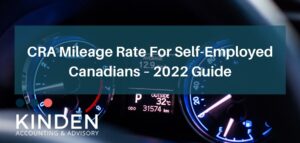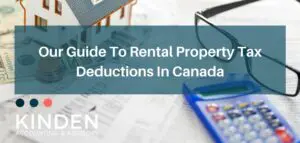In this article, we aim to help you understand each of these considerations and explain why they matter.
Credentials
In most jurisdictions across the globe, you do not have to have an accounting designation or license to call yourself an accountant. Most unlicensed accountants will tell you that there is no difference between them and a licensed accountant. That is not accurate.
In most countries, the recognized accounting designation is CPA. In Canada, this stands for “Chartered Professional Accountant.” Other countries use “Certified Professional Accountant” but it indicates the same thing. In general, the designation will be called a CPA.
So what? Well, there are a few requirements that come with being a CPA that unlicensed counterparts are not subject to.
First, CPAs are required to partake in continuing professional development. This is a minimum number of hours each year that need to be dedicated to keeping their knowledge of tax, financial reporting, regulatory, compliance, and ethics developments in the accounting world. Unlicensed counterparts do not have such a requirement.
Second, holding a CPA designation in Canada has a combination of education requirements, examinations, and practical experience. There is a standard that must be met in order to hold a CPA designation. This is not the case for unlicensed counterparts; with virtually no training or experience, anyone can claim to be an unlicensed accountant.
Third, a CPA is required to have professional liability insurance, which protects both the CPA and the client. This is because a CPA is considered an expert in their practice and has a duty to provide quality services to the public. Unlicensed counterparts do not have this requirement, which exposes the client to risk in the event an error is made.
Lastly, CPAs are regulated by Provincial bodies and are bound to a code of conduct. If a CPA does consistently crappy work, rips off clients, engages in negligence, deceives the public, or lacks integrity, the Provincial body will take away their license. With the average CPA salary in Canada being $62,000 per year, you can be assured they will follow codes of conduct to protect their livelihoods.
With all this being said, there are unlicensed accountants out there that perform quality work. There are some that will proactively engage in professional development, obtain professional liability insurance, and operate with quality and integrity. However, if you choose to pick an unlicensed accountant, it is important that you vet these aspects to ensure you are protected and receiving quality services.
Reviews
This one is obvious, but it’s worth talking about. Like everything else in this world, accountants also have an online presence. This is something you should take advantage of. You can check out all of the standard places that you would go to check out any other business
I would also recommend checking out the news. It sounds silly, but if they’ve been involved in a major scandal, you’ll want to know about it before you commit.
There are many great accountants out there that are either just starting out or have been at it for a while and haven’t developed an online presence. In other words, what you really want to be careful of here is negative reviews.
No reviews does not necessarily indicate there is something wrong with the accountant you’re considering; especially if they are a CPA because of the requirements that come with being licensed.
In fact, many times a new firm can be a great option if you’re on a budget or are looking for personalized service. This is because once many firms establish a clientele, they can become complacent and reduce quality of service or are at capacity and have to inflate prices to manage supply and demand.
Services
One of the problems with the term “accountant” or a designation like “CPA” is that it is very broad in terms of the services that are provided. The truth is that most CPAs specialize in a handful of services and not all of the services that a CPA can provide.
Here’s a list of just some of the services a CPA provides:
- Bookkeeping
- Personal Tax
- Corporate Tax
- Tax Planning
- Estate Planning
- Financial Planning
- Investment Management
- Forecasting and Budgeting
- Strategic Planning
- Financial Statement Compilations
- Financial Statement Reviews
- Financial Statement Audits
- Special Purpose Audits
- Integrated Audits
- Compliance Audits
- and many more
So what’s the point? It goes back to that old saying that “no-one is good at everything, but everyone is good at something.” This applies to picking your accountant.
If you’re looking for help with personal tax, go to an accountant that focuses on personal tax.
If you need help managing investments, go to an accountant that focuses on that.
In other words, if you need X service, go to an accountant that focuses on X.
If you already have an accountant, odds are they can refer you to a peer who can help you out.
Personality
Probably the most unexpected on this list, but it’s important that you actually like the accountant you choose to work with. Picking an accountant is a big commitment; once you’re working with them, it’s a real pain to switch. If they aren’t someone you implicitly get along with, you might find yourself regretting your decision down the road.
Your accountant is someone that you share the details of your business and finances with. They will know everything about what and where you spend your money, how much money you earn, problems your business may be facing, how much your employees make, etc. So, more than simply liking your accountant, you need to be able to trust them.
Value-add
The last and most important consideration is the value-added by your accountant. When picking your accountant, I highly recommend looking for someone who does more than just “bookkeep” or “file your taxes.”
Good accountants are experts in business; they can help you in ways you wouldn’t expect. They can identify opportunities for you to increase the profitability of your business, improve employee satisfaction, grow your existing business lines, develop and execute strategic plans, improve business process, and much more.
When picking your accountant, meet with them and ask yourself; is this someone who is just doing the books and taxes, or is this someone who is going to be a part of my team?
Conclusion
Picking your accountant is a big decision; they’ll know everything about your personal and business finances and the cost of changing can be significant. However, if you follow our advice in making your choice, you should end up with an accountant that is a great match for you and your needs.
We’re an online accounting firm in Halifax, Nova Scotia that delivers a stress-free accounting experience. Get in touch with us today to see how we can help.



